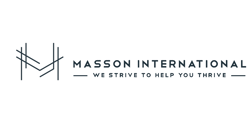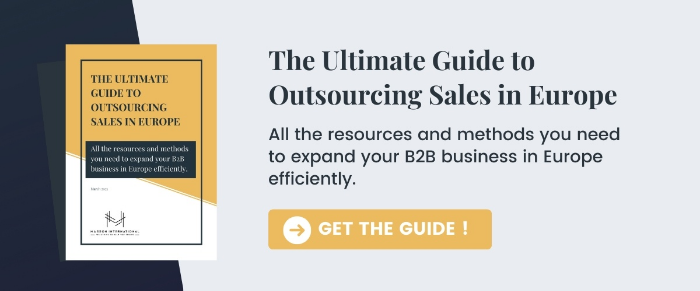Venturing into international markets unlocks a treasure trove of opportunities for companies eager to expand their horizons. Global e-commerce sales are projected to grow to over $8 trillion by 2027 (source: statistica.com)
While this highlights significant growth potential, navigating the complexities of international selling can feel overwhelming. This is especially true for smaller businesses with limited resources and expertise.
Europe stands out with its rich tapestry of economies and robust trade networks. But tapping into this market demands meticulous preparation and astute strategy.
This article unveils the most effective European market entry strategies for driving international sales in Europe. We'll provide practical tips and deep insights to help you explore the terrain.Navigating the intricacies of diverse cultures, regulations, and economic landscapes is vital, and this guide is your key to mastering these complexities and boosting your international sales strategy in Europe.
1 - Building strong local partnerships
Establishing strong local partnerships is essential for successfully entering and expanding the European market. Local partners provide valuable insights into market dynamics, consumer preferences, and regulatory requirements.These are crucial for effective market penetration.
One of the top strategies to enhance your international sales in Europe is through building these robust local partnerships. Distributors and local partners act as bridges between your business and the local market, offering established networks, local knowledge, and logistical support to reduce entry barriers and accelerate growth.
Research potential partners to ensure they have a strong market presence and a good reputation. Align business goals and values, negotiate clear terms, and maintain regular contact to build trust and collaboration.
Regularly review partnership performance to ensure mutual benefits.
Gaining intercultural competence is also essential. European business cultures are diverse; for example, while Germans and Swedes focus on punctuality and agendas during meetings, Spaniards and Italians prioritize personal relationships and face-to-face communication. Be sure to understand these cultural nuances. It will help to build trusting and effective partnerships.
In addition, building strong local partnerships can mitigate risks and provide a support system that comprehends the intricacies of the European market.Leveraging the knowledge and networks of local distributors can enhance market penetration and adaptation to local consumer behaviors. This will boost your international sales and position your business for success in Europe.
To find out more, read our guide to finding a distributor in Europe.
2 - Digital marketing and sales approaches
Leveraging digital platforms is essential for reaching a broad audience and driving European sales conversions. With the rise of e-commerce and social media, digital marketing has become integral to a successful international sales strategy. Digital platforms can enhance market reach, streamline lead generation, and boost sales conversions. Effectively utilizing these tools can give you a competitive edge in the European market.
Optimize your website to ensure it's user-friendly, mobile-optimized, and localized for European markets. Leverage social media platforms like LinkedIn to engage with potential customers and build brand awareness. Implement SEO tactics to optimize content for search engines, improving visibility and attracting organic traffic.
Use targeted advertising to run ads tailored to specific demographics and regions within Europe. Additionally, e-commerce platforms can be utilized to sell products directly through popular online marketplaces.
Creating localized content that resonates with European consumers is key to an effective digital marketing strategy. This includes understanding cultural nuances and preferences. This understanding alone can significantly impact the success of your marketing campaigns.
By focusing on European digital marketing tactics, businesses can better tailor their approaches to meet European consumers' distinct needs and behaviors.
3 - Trade shows and networking events
Participating in trade shows and networking events is an excellent way to build brand recognition, establish connections, and generate European leads. It builds you up as a reputable player in the international market. These events offer prime opportunities to better understand competitive dynamics. They allow businesses to showcase their products, meet potential partners, and gain insight into these dynamics.
They are particularly effective for boosting cross-border sales in Europe. To maximize trade shows and networking events, you must have a clear strategy and well-defined objectives. Select events that attract your target audience and offer the most potential business opportunities. Prepare thoroughly by having marketing materials, product samples, and presentations ready, and train your team to engage effectively with attendees.
Define clear goals for what you want to achieve, such as lead generation, brand exposure, or partnerships. After the event, follow up promptly with leads and connections to maintain momentum and build relationships. Effective international partnership management can further enhance the benefits gained from these events.
Actively participating in industry-specific trade shows and events in your target region can lead to significant business opportunities. For instance, showcasing your products at major European trade shows can attract potential partners and customers, expand your market reach and drive sales growth.
4 - Customer service and support
While this may seem obvious, providing excellent customer service and support is crucial for building trust and loyalty among European customers. Europe is home to over 740 million people across more than 50 countries, each with its own languages, dialects, and unique buying patterns.
So, multilingual customer support in Europe and local service centers is key to an effective customer service strategy.
Offering customer support in multiple languages demonstrates your commitment to meeting the needs of diverse European customers.It enhances customer satisfaction and can lead to increased sales and customer retention. Hire multilingual staff to ensure your customer service team can communicate effectively in the languages of your target markets. Localize your support channels by offering regional phone numbers, email addresses, and chat options.
Empower your sales team with the cultural insights and language skills needed to engage effectively with customers across various regions. This might include hiring local sales representatives or providing language training for your current team.
Implement customer relationship management (CRM) systems to track interactions and improve service quality. Conduct regular training sessions for your team to update them on best practices and new tools. Encourage customers to provide feedback and use it to continuously improve your services.
Providing excellent multilingual customer service will differentiate your business from competitors and significantly enhance the customer experience, fostering long-term loyalty.
5 - Monitoring performance and scalability
Monitoring your sales performance and scalability is essential to ensure sustained growth and adaptability in the European market. The right tools and metrics can help you make informed decisions and optimize your strategies. This is crucial for business scaling in Europe.
Tracking key performance indicators (KPIs) and using advanced analytics tools can provide valuable insights into your sales operations. This enables you to identify areas for improvement and capitalize on successful strategies.Implement tools like Google Analytics, CRM systems, and sales dashboards to monitor performance. Focus on KPIs such as sales growth, website traffic, customer acquisition cost, and customer lifetime value.
Conduct regular reviews to evaluate your sales strategies and performance. Be sure to identify trends and adjust tactics accordingly. Invest in technology like automation and AI to streamline processes and improve efficiency. Stay agile and be ready to modify your strategies based on market feedback and evolving conditions.
Analyze data to pinpoint areas for improvement and optimize your strategy using insights from various markets. Regularly assess the effectiveness of your international sales strategies. Always be ready to adapt based on market trends, customer feedback, and data-driven insights.
Monitoring performance ensures your business can adapt to market changes and continue to grow. For instance, regular sales data analysis can reveal trends and opportunities for enhancement. You can then enable data-driven decisions that boost overall performance.

Conclusion
Your international sales strategy in Europe requires a unique approach and a deep understanding of the market dynamics. By incorporating effective international sales strategies such as building strong local partnerships, leveraging digital marketing, participating in trade shows, providing excellent customer service, and continuously monitoring performance, you can enhance your market penetration and achieve sustained growth.
Implement these strategies to boost your international sales and position your business for success in the European market. For businesses looking to expand into France, Switzerland, or Belgium, we offer comprehensive business development and corporate services.
Learn how we can help you building a sales local team in Europe, visiting new prospects and boosting your growth.






